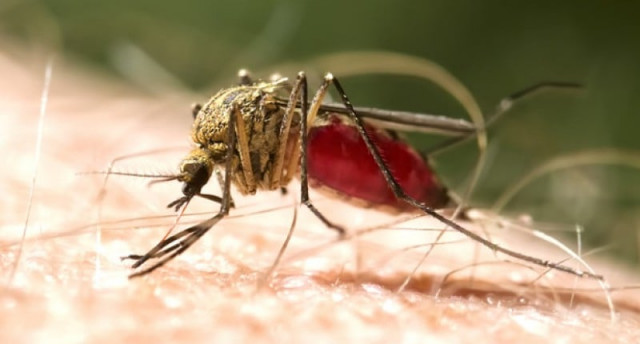Chikungunya spirals into epidemic
Medics warn against unproven treatments as high cost deters diagnostic tests

Chikungunya virus has spiraled into a full-blown epidemic in the metropolitan city as the caseload continues to mount. However, the high cost of diagnostic tests and lack of specific treatments have led to widespread self-diagnosis among patients. Quacks in the meanwhile are cashing in on people's fears, offering unproven drops and treatments for the vector-borne disease.
Unhygienic environments and poor disinfection have spawned uncontrolled mosquitos breeding in the teeming metropolis of 30 million. The unbridled breeding of mosquitos has triggered a spike in vector-borne diseases, including dengue and chikungunya. As a result, public and private healthcare facilities are overwhelmed with patients complaining of high fever, chills, body aches, and headaches. In urban areas, nearly every household reports at least one or two members suffering from symptoms like high fever, cold, body aches, and bone pain.
The mosquito responsible for the outbreak of chikungunya is from the same genus as the dengue virus. However, the current decline in testing trends provides insufficient data to accurately assess the situation. Doctors say that the high cost of diagnostic tests deters people from seeking laboratory testing, resulting in an underreporting of cases and a prevalence of disease that far exceeds official figures.
JPMC's general physician Dr Faisal Javed warns that chikungunya cases are rising in Karachi due to mosquito breeding in the megalopolis. Chikungunya is spread through mosquito bites and symptoms include high fever, chills, nausea, stomach pain, and headache. Joint pain and swelling are distinctive indicators.
Typically, symptoms appear four days after a mosquito bite. Fever subsides within three to four days, but joint pain and swelling can last two to three months, decreasing gradually based on the patient's immune system and diet. To safeguard against chikungunya, people are advised to wear full-sleeved clothing and eliminate stagnant water in homes to prevent mosquito breeding. Since there's no specific treatment, medics provide symptom-based care.
Often, patients try home remedies to manage symptoms. Beware of false chikungunya cure claims on social media. Quacks claiming to offer cures should be avoided, as their remedies can lead to severe dehydration and electrolyte imbalance in patients. Chikungunya is a self-limiting disease, meaning it resolves on its own within a few days. However, attempting unproven home remedies can exacerbate symptoms. Instead, patients are advised to focus on supportive care. A balanced diet rich in cooling foods such as fruits, vegetables, milk, and porridge can aid recovery. Fried foods should be avoided.
Daily, JPMC receives around 40 to 50 patients with tell-tale chikungunya symptoms. This virus is not contagious through close contact with an infected person. During the winter months, some people who have contracted chikungunya may experience persistent bone pain. However, a healthy diet can aid recovery and alleviate residual symptoms.
According to the Sindh Health Department, a sizeable number of suspected chikungunya cases were recently tested, with 894 patients undergoing PCR tests across the province. Of these, 671 tested positive at both public and private health centres.



















COMMENTS
Comments are moderated and generally will be posted if they are on-topic and not abusive.
For more information, please see our Comments FAQ